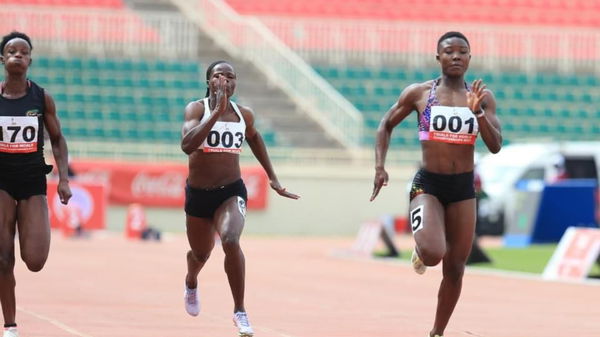

American track and field is ready for the upcoming 2024 United States Olympic Trials in Eugene, Oregon, set to unfold from June 21-30. However, before the U.S nation’s top athletes gather to vie for coveted spots on the Olympic team, a surprising twist emerges from across the globe. It’s Kenya, making waves by announcing its decision to host its Paris Olympics Trials at the iconic Prefontaine Classic in the U.S. on 25th May. This revelation underscores a significant shift particularly within the 10,000-meter event, designated as the Olympic team selection event.
Yet, amidst the buzz and excitement, a ripple of controversy courses through the American track and field community. Ever since news broke of Kenya’s unconventional choice, voices of skepticism and concern have emerged. Notably, sprint sensation Noah Lyles has publicly criticized World Athletics, questioning the wisdom of hosting another country’s Olympic qualifier on American soil. However, beyond the surface-level debate lies a rationale for this unprecedented collaboration.
ADVERTISEMENT
Article continues below this ad
Reasons for Hosting Kenya’s national team selection races at the Prefontaine Classic before Paris Olympics
Kenya’s decision to host its national team selection races in Eugene at the Prefontaine Classic stems from several strategic advantages.
- The timing of the Prefontaine Classic grants successful athletes a crucial two-month period to fine-tune their training regimens before the Paris Olympics Games, ensuring they peak at the pinnacle of their performance.
- Eugene’s lower altitude offers a distinct advantage over Kenya’s high-altitude terrain, providing athletes with conditions more conducive to achieving fast times and meeting stringent Olympic qualifying standards.
- With a history of shaping Kenya’s Olympic team selections, particularly in events like the 10,000m, the Prefontaine Classic stands as a proven platform for identifying and nurturing top-tier talent.
- Conducting trials at high altitudes presents logistical hurdles for athletes striving to meet qualifying benchmarks, making it pragmatic to seek venues with more favorable conditions.
- By participating in the Prefontaine Classic, Kenya’s elite athletes can display their prowess on an international stage, enhancing their visibility and solidifying their positions on the Olympic team amidst fierce competition from across the globe.
ADVERTISEMENT
Article continues below this ad
Even Athletics Kenya Director of Youth Affairs, Barnaba Korir, underscores the practical challenges of hosting trials at altitude, emphasizing the pragmatic necessity of seeking more conducive conditions for achieving qualifying marks. In his words, “Even if we were to hold the trials in the country, getting someone to qualify at altitude is next to impossible.”
A lineup boasting seasoned contenders like Daniel Simiu Ebenyo, Samuel Waithaka, and Kibiwott Kandie among the men, and formidable talents like Gudaf Tsegay, Beatrice Chebet, and Lilian Kasait among the women on the 25th May race promises to be a showcase of elite athleticism and fierce competition. But why does this bother Noah Lyles?
ADVERTISEMENT
Article continues below this ad
Noah Lyles’ inquiry highlights logistical challenges
Lyles raised pertinent questions regarding the decision of race organizers to host another country’s trials. This decision sparked controversy, especially after Daniel Ebenyo, last year’s silver medalist in the event, initially faced visa hurdles, potentially impacting his participation in upcoming trials that will be held in the US. Though Ebenyo later obtained his visa and traveled to the US for the crucial competition, the incident highlighted a less visible aspect of the sport, drawing attention to the logistical challenges faced by athletes on the global stage.
Expressing his dismay, Lyles engaged in a discourse on X, echoing concerns shared by many within the athletics community. He questioned, “Why in the world are we hosting another country’s Olympic qualifier. We should know how much of an issue this is after Worlds ’22. Also, their country won’t be able so see their athletes make the team in person.” This came after Africa’s fastest man, Ferdinand Omanyala, encountered visa issues that impeded his timely arrival for the global event in 2022. Lyles’ poignant remarks underscored the importance of considering the broader implications of such decisions, not only for athletes but also for the integrity and inclusivity of the sport on the international stage.
ADVERTISEMENT
ADVERTISEMENT
ADVERTISEMENT
